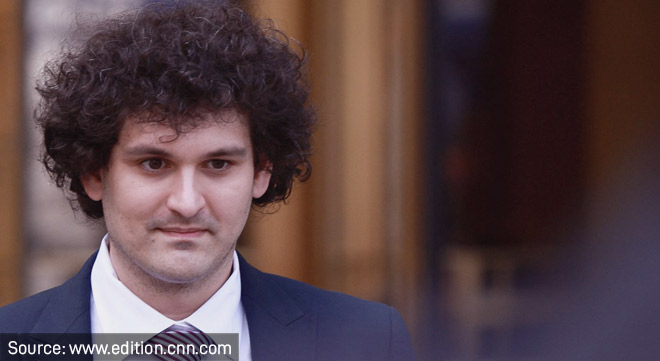Sam Bankman-Fried, the disgraced cryptocurrency mogul convicted of one of the largest financial frauds in history, received a 25-year prison sentence and was ordered to forfeit $11 billion in assets on Thursday (28 March). His lawyer vowed to appeal the ruling on the same day.
The penalty was issued by Judge Lewis Kaplan in a Manhattan courtroom, with Bankman-Fried, the former chief executive of the now-bankrupt cryptocurrency exchange FTX, donned in prison attire. Despite Kaplan’s description of him as a calculating maths genius who sought power while knowingly committing wrongdoing, Bankman-Fried showed little reaction as the sentence was read.
During the sentencing, Judge Kaplan criticised Bankman-Fried for his lack of remorse and stated that he knew his actions were criminal. The judge also rejected defence arguments about sentencing guidelines and highlighted instances of perjury during Bankman-Fried’s trial testimony.
Before the sentencing, Bankman-Fried and his defence attorney, Marc Mukasey, offered statements. Bankman-Fried apologised for the collapse of FTX, attributing it to mismanagement, and expressed regret for his actions. Mukasey attempted to portray Bankman-Fried as a misunderstood individual who made mistakes because of social awkwardness and depression.
Judge Kaplan was unmoved by these arguments, emphasising the seriousness of Bankman-Fried’s crimes despite acknowledging his social challenges. He criticised Bankman-Fried’s lack of intent to take responsibility for his actions, stating that he saw a risk of future wrongdoing if given the opportunity.
Prosecutors had sought a longer sentence, arguing that Bankman-Fried showed a lack of remorse while leading a life of “unmatched greed and hubris”. In response to claims that FTX customers could be paid back, Judge Kaplan dismissed such assertions, likening them to a thief hoping to return winnings after a spree in Las Vegas.
Bankman-Fried’s trial saw damning testimony from former associates, including his on-again, off-again girlfriend Caroline Ellison, who accused him of directing fraudulent activities.
Celebrity status
Once hailed as a wunderkind reshaping finance, Bankman-Fried graced the covers of Forbes and Fortune magazines and was considered a potential successor to Warren Buffett.
As the founder of FTX, the world’s second-largest cryptocurrency exchange, Bankman-Fried enjoyed celebrity status, with star-studded endorsements featuring Naomi Osaka and Larry David adding to the allure.
However, in November 2022, his crypto empire crumbled when it was revealed that $10bn in customer funds was missing.
A year later, a jury convicted Bankman-Fried of fraud and money laundering, based on testimony from former colleagues who had turned against him. The fallout extended to five million FTX customers, who were locked out of their accounts amid the company’s bankruptcy.
Behind the scenes, FTX’s reality clashed with its slick marketing image. Secret back doors allowed Bankman-Fried’s other company, Alameda Research, to access customer funds for risky investments without their consent. Executives indulged in lavish spending, with private jets shuttling Amazon orders and millions spent on luxury hotels.
The fallout from FTX’s collapse reached the White House, with Bankman-Fried emerging as one of Joe Biden’s largest campaign donors. Amid scrutiny, pressure mounted on the president to return millions of dollars in contributions.
Compiled from reports by Reuters, The Guardian, and Business Insider.



